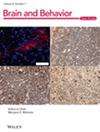Effect of Acceptance and Commitment Therapy on Motivation and Adherence to Immunosuppressive Medication in Liver Transplant Recipients: A Randomized Controlled Trial
Abstract
Background
After liver transplantation, recipients continue to receive immunosuppressive drug regimens at varying doses for years to ensure graft function and survival. Although liver transplant recipients are aware of the importance of immunosuppressive drug regimens, treatment compliance may decrease over time due to low motivation, putting recipients at risk of organ rejection. Acceptance and commitment therapy (ACT) appears to be an ideal solution for increasing motivation and, indirectly, treatment compliance.
Objective
The aim of this study was to investigate the effect of ACT on adherence to immunosuppressive medication and motivation in liver transplant recipients.
Methods
This study was conducted at an organ transplant hospital with the participation of recipients who had completed at least 6 months post-liver transplant. The sample included n = 140 liver transplant recipients (n = 70 experimental, n = 70 control). The study was randomized and controlled. The control group received no intervention, while the experimental group underwent an eight-session ACT program administered by a psychologist. Data collection utilized a personal characteristics form, the Adherence to Immunosuppressive Drug Regimen Scale (AIDRS), the Mindfulness Scale (MS), and the Adult Motivation Scale (AMS). Data analysis was performed using descriptive statistical methods and tests of significance for differences between variables.
Findings
According to the homogeneity tests of this study, there was no statistically significant difference between the control and experimental groups in terms of individual characteristics (age, time since transplantation, immunosuppressive drugs, comorbidities, etc.). In the experimental group, the level of adherence to the immunosuppressive drug regimen after ACT was very close to the maximum AIDRS score. In the control group, the level of compliance with the immunosuppressive drug regimen was close to the mean value of the AIDRS. The differences mentioned in both groups were statistically significant (p < 0.05). In addition, the scores obtained from the MS and YMS were higher than those in the pretest. When the experimental and control groups were compared, the experimental group's final test YMS score was almost twice that of the control group, and this difference was statistically significant (p < 0.05).
Conclusion
The importance of full compliance with the immunosuppressive drug regimen in improving graft function after liver transplantation is well known. The results of this study showed that liver transplant recipients who underwent ACT demonstrated higher adherence to the immunosuppressive drug regimen due to increased motivation and conscious awareness. We recommend the use of ACT to increase adherence to the immunosuppressive medication due to its effectiveness.


 求助内容:
求助内容: 应助结果提醒方式:
应助结果提醒方式:


